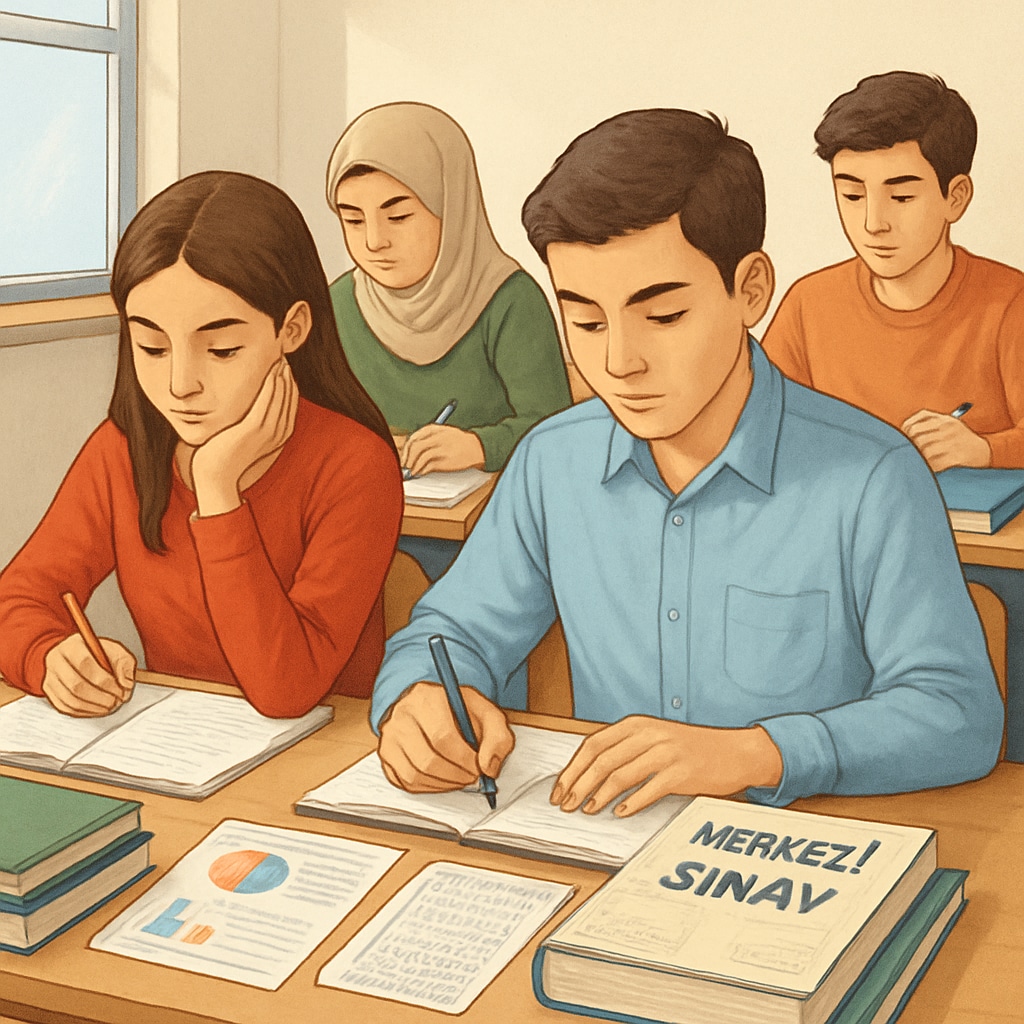In recent years, Turkey’s education system has faced growing scrutiny for its heavy reliance on centralized examinations. This approach has been criticized for creating significant exam pressure among students and limiting their potential for holistic development. By contrast, the United Kingdom’s A Levels model offers a flexible and personalized assessment framework, which may provide valuable lessons for Turkey’s ongoing education reform. This article dives into the key differences between these systems and explores how Turkey can adapt its approach to foster a more balanced and inclusive educational experience.
Turkey’s Centralized Exam System: Challenges and Limitations
Turkey’s education system is characterized by a centralized high-stakes examination structure, often referred to as the YKS (Higher Education Institutions Examination). This exam plays a decisive role in determining a student’s university placement, creating immense pressure on both students and educators. The YKS evaluates students through a rigid format, prioritizing rote memorization over critical thinking and creativity.
This system has several limitations:
- Excessive Stress: The high-stakes nature of the exams leads to overwhelming anxiety among students, often affecting their mental health.
- Narrow Focus: Students are trained to excel in exams rather than develop practical skills or explore interests beyond the curriculum.
- Limited Flexibility: The one-size-fits-all approach overlooks individual learning styles and strengths, making it difficult for students to shine in diverse fields.
As a result, Turkey’s current model risks stifling creativity and innovation, two essential qualities for success in the modern world.

The A Levels Model: Flexibility and Student-Centric Learning
In contrast to Turkey’s centralized system, the UK’s A Levels (Advanced Level qualifications) offer a more flexible and student-focused approach. A Levels allow students to choose subjects based on their interests and career aspirations, giving them greater autonomy in their educational journey. This system evaluates students through a combination of coursework, exams, and practical assessments, emphasizing critical thinking and problem-solving skills.
Key strengths of the A Levels model include:
- Subject Choice: Students typically select three to four subjects, enabling them to focus on areas where they excel.
- Balanced Assessment: The inclusion of coursework and practical evaluations reduces the reliance on a single final exam.
- Preparation for Higher Education: The depth of study in A Levels equips students with skills essential for university and beyond.
Moreover, the A Levels system encourages independent learning and self-discipline, which are critical for personal and professional growth.

How Turkey Can Learn from the A Levels Approach
To address the shortcomings of its current education system, Turkey can draw valuable lessons from the A Levels model. Implementing the following strategies could significantly enhance student outcomes:
- Introduce Subject Flexibility: Allowing students to choose subjects based on their interests can help them stay motivated and engaged.
- Diversify Assessment Methods: Incorporating coursework, group projects, and practical exams can reduce the pressure of a single high-stakes test.
- Promote Holistic Development: Encouraging extracurricular activities and interdisciplinary learning can prepare students for real-world challenges.
- Provide Counseling Support: Offering mental health resources and academic guidance can alleviate exam-related stress.
While adapting these practices, it is essential to consider Turkey’s unique cultural and socio-economic context to ensure the reforms are both practical and inclusive.
Conclusion: A Path Toward Balanced Education
Turkey’s education system stands at a crossroads, with an urgent need to move away from its rigid, exam-centric model. By drawing inspiration from the UK’s A Levels, Turkey can build a more flexible and student-centered framework that encourages creativity, critical thinking, and holistic development. Such reforms would not only reduce exam pressure but also unlock the full potential of future generations, preparing them to thrive in an increasingly complex world.
Education is the cornerstone of progress, and by embracing innovative approaches, Turkey can ensure its students are equipped with the tools they need for success.
Readability guidance: Short paragraphs, clear subheadings, and lists have been used to enhance readability. Overarching themes are tied together with transitions, ensuring a coherent flow of ideas.


